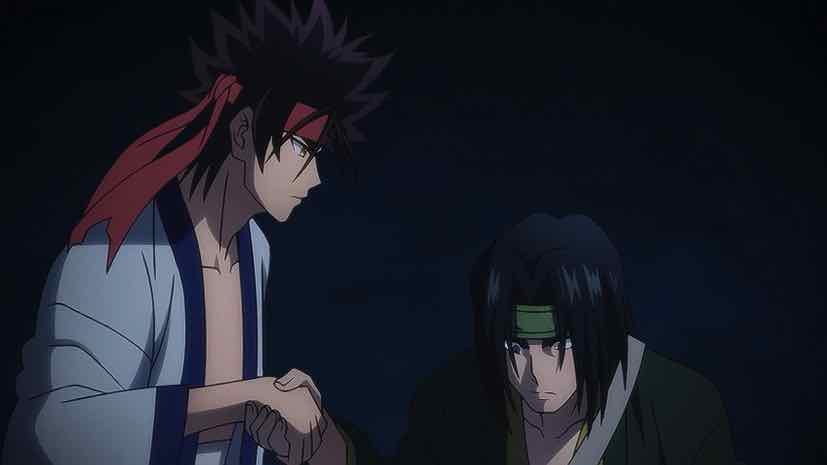Guardian Enzo
Curated From randomc.net Check Them Out For More Content.
「津南と錦絵」 (Tsunan to Nishiki-e)
“Tsunan & Nishiki Paintings”
I don’t think even the fiercest partisan of the 1996 anime would deny that this version is more faithful to the manga (though they might debate the merits of that). But this reboot of Rurouni Kenshin isn’t a panel-for-panel adaptation by any means. It’s inserting some original scenes here and there, and I would argue mostly to good effect. One such example is the post-credits scene here, which quite logically had the Meiji bureaucrats wondering what had caused all that ruckus on their lawn. It was the first mention of one of the truly legendary figures of Ruroken, and while we’re still a ways off seeing him, I think this reference is further evidence the anime is probably planning to go well beyond these original two cours.
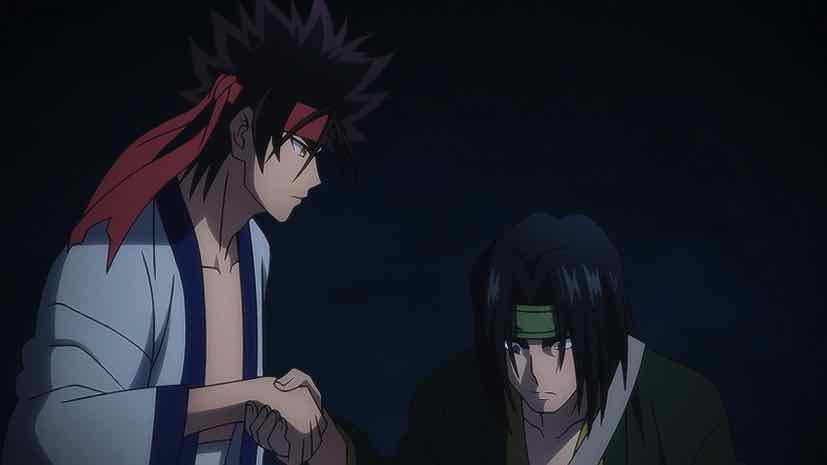 This arc and the Raijuuta arc are not Furuhashi’s best work with Rurouni Kenshin in my option (the Oniwabanshu on the other hand, he adapted splendidly). I think it’s because both are mainly driven by themes of Watsuki’s manga that just didn’t interest Furuhashi much. Both Raijuuta and Katsu are paper tigers in a sense, and in a vacuum that makes them less dynamic antagonists. I think the 1996 series was more interested in the battle side of RK, largely ignoring the sociopolitical elements which were essential to the manga.
This arc and the Raijuuta arc are not Furuhashi’s best work with Rurouni Kenshin in my option (the Oniwabanshu on the other hand, he adapted splendidly). I think it’s because both are mainly driven by themes of Watsuki’s manga that just didn’t interest Furuhashi much. Both Raijuuta and Katsu are paper tigers in a sense, and in a vacuum that makes them less dynamic antagonists. I think the 1996 series was more interested in the battle side of RK, largely ignoring the sociopolitical elements which were essential to the manga.
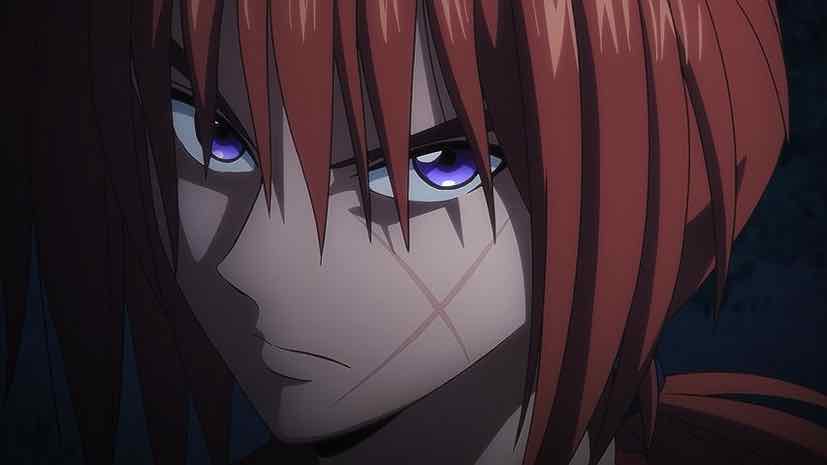 I don’t personally think Raijuuta and Katsu were written to be stand-alone figures – like almost everything from this part of the manga, they’re meant to be a part of a larger picture Watsuki is painting. Of disillusionment and failure and corruption, and the weight of regret. if Raijuuta and Katsu are pathetic in a sense, it’s because Watsuki wanted them to be. They represent elements of a society adrift, caught between a feudal past and an encroaching modern world that threatens the values they believe in. But as far as the ’96 series goes, I don’t think they’re anything more than just pathetic.
I don’t personally think Raijuuta and Katsu were written to be stand-alone figures – like almost everything from this part of the manga, they’re meant to be a part of a larger picture Watsuki is painting. Of disillusionment and failure and corruption, and the weight of regret. if Raijuuta and Katsu are pathetic in a sense, it’s because Watsuki wanted them to be. They represent elements of a society adrift, caught between a feudal past and an encroaching modern world that threatens the values they believe in. But as far as the ’96 series goes, I don’t think they’re anything more than just pathetic.
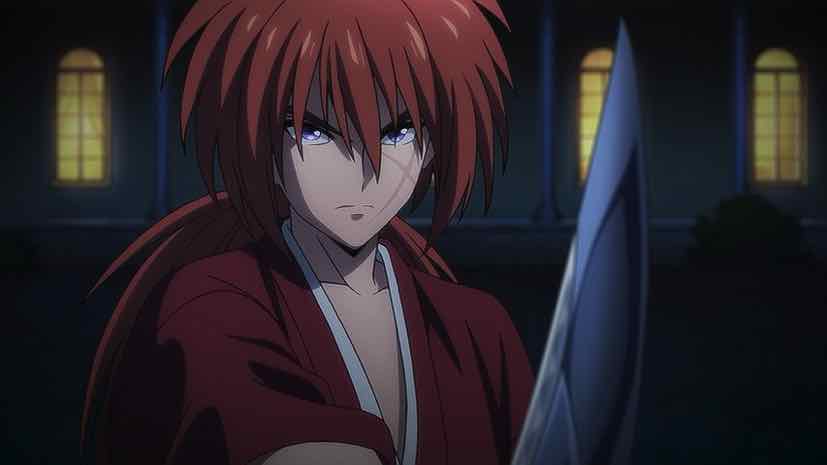 Given all that, when Kenshin gets involved there’s no real suspense about what the outcome will be. Katsu, bombs or no, is no match for the Battousai. I think the real question is whether Sano was surreptitiously trying to draw Kenshin into interfering all along. He knew full well this was a fool’s errand, and I don’t think he’s a guy who would relish being branded as a terrorist. Kenshin declares than Sano can do what he wants, and it’s not his business to judge. But when crimes are going to be committed and people killed, he’s going to act.
Given all that, when Kenshin gets involved there’s no real suspense about what the outcome will be. Katsu, bombs or no, is no match for the Battousai. I think the real question is whether Sano was surreptitiously trying to draw Kenshin into interfering all along. He knew full well this was a fool’s errand, and I don’t think he’s a guy who would relish being branded as a terrorist. Kenshin declares than Sano can do what he wants, and it’s not his business to judge. But when crimes are going to be committed and people killed, he’s going to act.
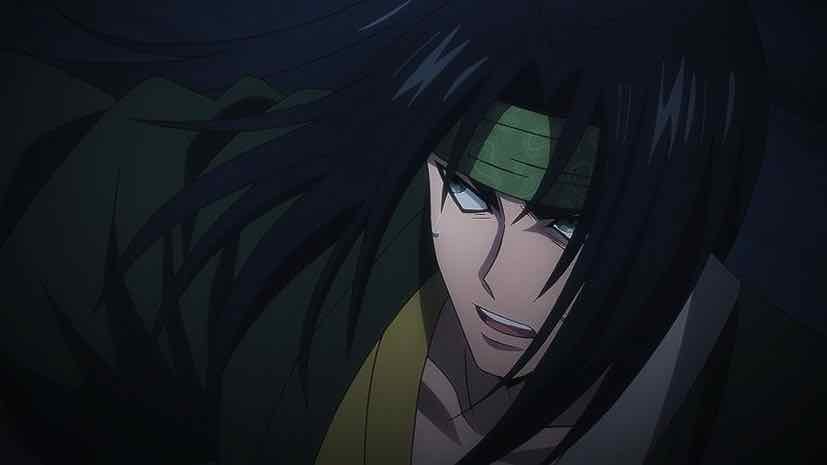 Once the massive difference in skill level becomes inescapable Sano brings the proceedings to a halt pretty quickly. Kenshin takes custody of the bombs, but leaves Katsu in Sanosuke’s hands. Katsu’s first thought is to commit seppuku in front of the government building in order to draw attention to the cause, but Sano has seen too much of the world to believe something like that would make a real difference. Hearing Katsu’s justification for his actions sounds a lot like Aoshi in fact. For all that he talks about the ideals his captain believed in, this is really more about reputation that anything else.
Once the massive difference in skill level becomes inescapable Sano brings the proceedings to a halt pretty quickly. Kenshin takes custody of the bombs, but leaves Katsu in Sanosuke’s hands. Katsu’s first thought is to commit seppuku in front of the government building in order to draw attention to the cause, but Sano has seen too much of the world to believe something like that would make a real difference. Hearing Katsu’s justification for his actions sounds a lot like Aoshi in fact. For all that he talks about the ideals his captain believed in, this is really more about reputation that anything else.
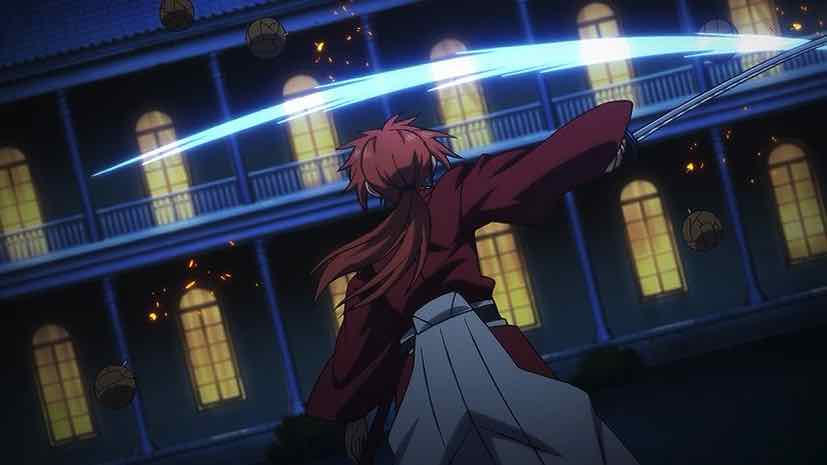 That said, there is a deep bond between these last two survivors of the Sekiho Army and Sano isn’t going to leave Katsu to throw away his life for nothing. His point – that Kenshin feels the pain of the government’s corruption even more than they do, because he helped create it – is the salient one. There are many different paths Kenshin could have chosen to express his dismay over the state of the world and his role in it, and all these antagonists are there, to an extent, to personify what that might have looked like. But of course they’re all preamble, really, to the main event – which will show what might have happened if someone of Kenshin’s superhuman ability had chosen a darker road.
That said, there is a deep bond between these last two survivors of the Sekiho Army and Sano isn’t going to leave Katsu to throw away his life for nothing. His point – that Kenshin feels the pain of the government’s corruption even more than they do, because he helped create it – is the salient one. There are many different paths Kenshin could have chosen to express his dismay over the state of the world and his role in it, and all these antagonists are there, to an extent, to personify what that might have looked like. But of course they’re all preamble, really, to the main event – which will show what might have happened if someone of Kenshin’s superhuman ability had chosen a darker road.

